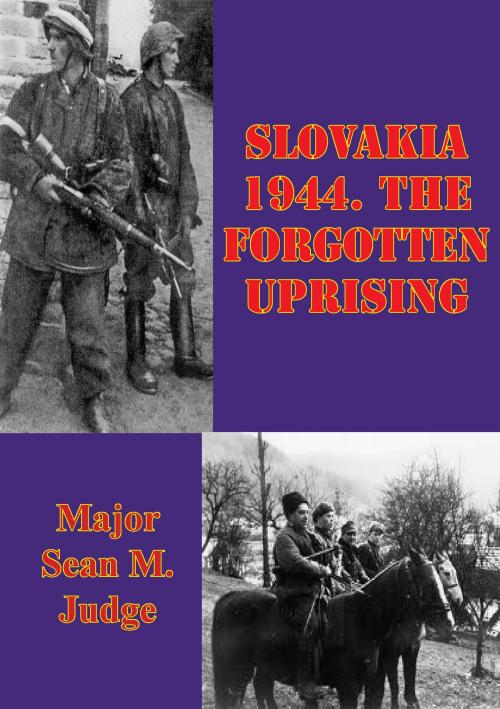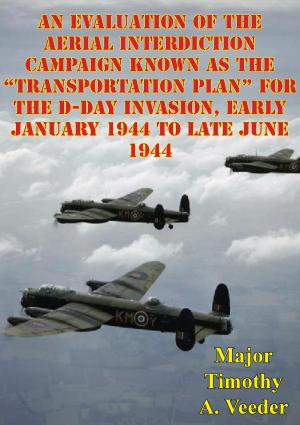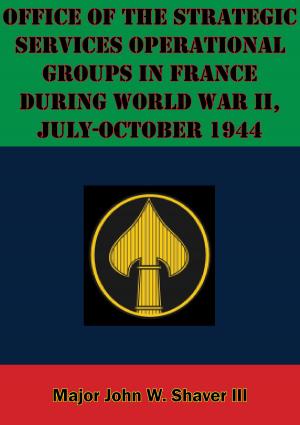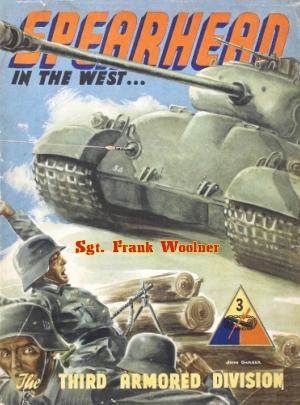Slovakia 1944. The Forgotten Uprising
Nonfiction, History, Germany, European General, Military, United States| Author: | Major Sean M. Judge | ISBN: | 9781782898023 |
| Publisher: | Lucknow Books | Publication: | August 15, 2014 |
| Imprint: | Lucknow Books | Language: | English |
| Author: | Major Sean M. Judge |
| ISBN: | 9781782898023 |
| Publisher: | Lucknow Books |
| Publication: | August 15, 2014 |
| Imprint: | Lucknow Books |
| Language: | English |
The Slovak National Uprising of 1944 is ignored and/or treated as a non-event in the Western historiography of World War II. The political climate during World War II and the Cold War that followed obscured and distorted the history and understanding of this revolt. The raising of the Iron Curtain in the 1990s removed the veil of secrecy from much of Eastern Europe's wartime history, and Western historians are exploring the new resources available, but coverage of Slovakia's story and uprising remains very limited. This work aims to fill some of the void.
Fully understanding the uprising requires an analysis of a number of different viewpoints in order to avoid capture by the political views of the parties involved: the Slovaks, the Germans, or the Soviets. Each group had different plans and goals: the Slovaks found themselves precariously between the Allies and Germany, the Germans fought to maintain their strategic position in central Europe while the Soviets hoped to expand their influence through eastern and central Europe. Each group naturally interpreted events differently and acted accordingly. Ultimately the Germans crushed the Slovak rebellion.
Events surrounding the uprising remain cloudy to this day. The Slovaks won only short-term political gains, but their Jewish and ethnic German populations paid a heavy price. The Germans won their last significant victory in the war and maintained their presence in Slovak territory until the very end. The Soviet Union suffered significant casualties, but saw Communist influence increase in the region. Recriminations swirl around the lack of Allied support and the duplicity of Stalin. Western historians have excluded coverage of the uprising in part to avoid embarrassment. Significantly, the Slovaks remain at odds among themselves about the importance and the meaning of the uprising.
The Slovak National Uprising of 1944 is ignored and/or treated as a non-event in the Western historiography of World War II. The political climate during World War II and the Cold War that followed obscured and distorted the history and understanding of this revolt. The raising of the Iron Curtain in the 1990s removed the veil of secrecy from much of Eastern Europe's wartime history, and Western historians are exploring the new resources available, but coverage of Slovakia's story and uprising remains very limited. This work aims to fill some of the void.
Fully understanding the uprising requires an analysis of a number of different viewpoints in order to avoid capture by the political views of the parties involved: the Slovaks, the Germans, or the Soviets. Each group had different plans and goals: the Slovaks found themselves precariously between the Allies and Germany, the Germans fought to maintain their strategic position in central Europe while the Soviets hoped to expand their influence through eastern and central Europe. Each group naturally interpreted events differently and acted accordingly. Ultimately the Germans crushed the Slovak rebellion.
Events surrounding the uprising remain cloudy to this day. The Slovaks won only short-term political gains, but their Jewish and ethnic German populations paid a heavy price. The Germans won their last significant victory in the war and maintained their presence in Slovak territory until the very end. The Soviet Union suffered significant casualties, but saw Communist influence increase in the region. Recriminations swirl around the lack of Allied support and the duplicity of Stalin. Western historians have excluded coverage of the uprising in part to avoid embarrassment. Significantly, the Slovaks remain at odds among themselves about the importance and the meaning of the uprising.









![Cover of the book The Dynamics Of Doctrine: The Changes In German Tactical Doctrine During The First World War [Illustrated Edition] by Major Sean M. Judge](https://www.kuoky.com/images/2015/november/300x300/9781786250193-hbLT_300x.jpg)

![Cover of the book My Experiences In The World War – Vol. II [Illustrated Edition] by Major Sean M. Judge](https://www.kuoky.com/images/2014/june/300x300/9781782891284-xHoK_300x.jpg)


![Cover of the book A War Minister And His Work: Reminiscences Of 1914-1918 [Illustrated Edition] by Major Sean M. Judge](https://www.kuoky.com/images/2015/november/300x300/9781786255624-qEOd_300x.jpg)
![Cover of the book A Surgeon In Khaki [Illustrated Edition] by Major Sean M. Judge](https://www.kuoky.com/images/2014/august/300x300/9781782892700-YwlT_300x.jpg)